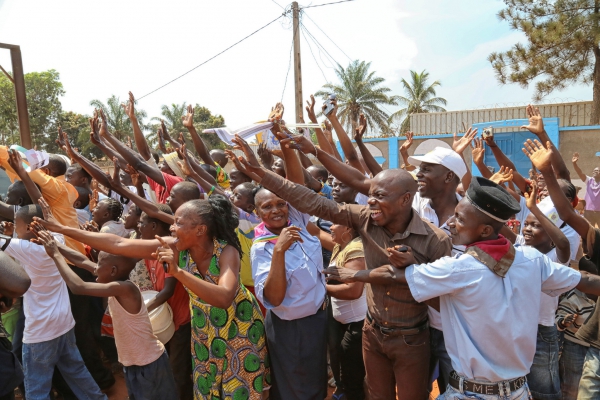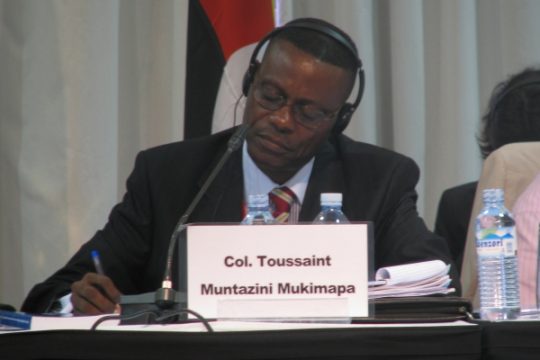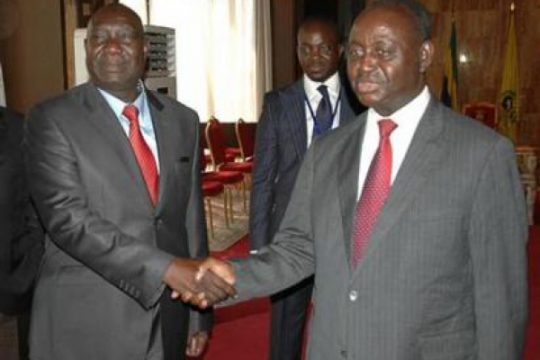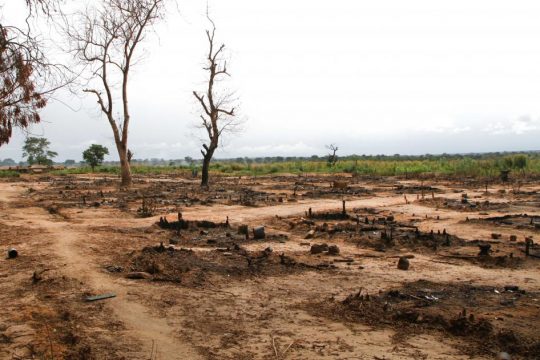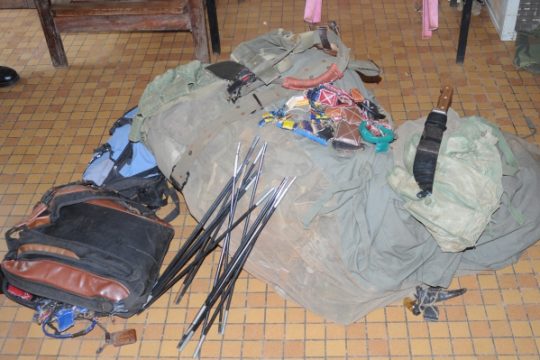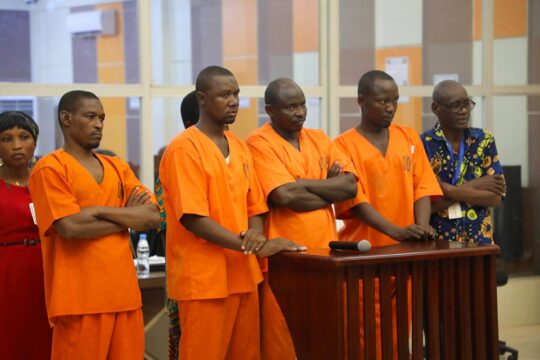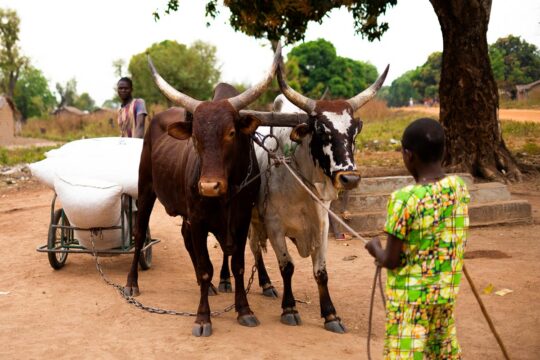In the Central African Republic (CAR), President Touadera’s February 14 nomination of a Prosecutor for the Special Criminal Court* is an important step, but should not raise unrealistic hopes, according to jurist Didier Niewiadowski, a former adviser to the French embassy in Bangui. He says the presence in Touadera’s government of people close to former president François Bozizé, and the current de facto partition of the country will make Congolese Prosecutor Toussaint Muntazini Mukimapa’s task difficult.
JusticeInfo: Can a Special Criminal Court, which is unlikely to issue its first indictments for months, really dissuade serious crimes, which are sharply on the rise in the recent days?
Didier Niewiadowski: The Congolese colonel who has been named Chief Prosecutor of the Special Court knows very well that the war crimes and crimes against humanity being perpetrated daily in the CAR will not be magically stopped by the creation of the court. The criminals are lawless people who know only violence in their human relations. These savages live in a world that has no notion of rule of law. In any case, the CAR’s partners will need to provide the full funding for the setting up and operations of the Special Court. That will take a lot of time and will also create discontent among Central African judges who don’t get the same privileges as their international colleagues appointed to the Special Court. The International Criminal Court took 13 years to convict (Congolese Senator) Jean-Pierre Bemba for crimes committed in the CAR. Has that had any impact in the country?
And clearly, the creation of the Special Court should not exempt the CAR authorities from immediately allocating the necessary funding to rebuild the judicial system. They should not wait any longer to recruit young lawyers, rehabilitate the courts and prisons and strengthen the capacities of judicial staff, otherwise they risk creating more insecurity and ignoring the indispensable need for national reconciliation.
According to some NGOs, some people suspected of grave crimes are currently in important posts in the new administration. Isn’t that a big challenge for the Congolese Prosecutor?
Numerous bigwigs of the Bozizé era are again at the presidency, in government and parliament. Jean-Francis Bozizé** returned to Bangui without a problem, despite an international arrest warrant against him issued by the Central African justice system in 2014. So it is hardly surprising that former close aides of Bozizé are not being troubled. Several former ministers in the Touadera governments (2008-2013) have returned to choice posts in the presidential office as advisers, often taking precedence over government ministers, such is the hyper-concentration of power. Whereas numerous former officials under Bozizé have returned to the government of President Touadera, there are very few from the transition government of Catherine Samba-Panza and even less from the regime set up by Michel Djotodia in 2013. As for public administration, it is in complete ruin and has lost its basic principles of public service, respect for the hierarchy and neutrality.
What do you think about reports that Bozizé and Djotodia are secretly negotiating an amnesty with the new government?
It is unlikely that the two ex-Heads of State can get the allegations against them lifted. It would be a bad legal precedent. A double amnesty would revive the pain suffered by citizens on all sides and would not help the national reconciliation process. It is possible that some people among the current CAR authorities support such a double amnesty, but opposition from the country’s main donors should be enough to stop it giving a boost to general impunity.
How will the Special Court investigate in areas still controlled by warlords?
Sixty percent of the country is under the control of armed groups. Any official mission into those areas needs to be accompanied by strong protection from MINUSCA (United Nations mission in the CAR). Given this widespread insecurity and the number of criminals who could potentially be indicted, we can see the enormity of the Court’s task. We might even ask ourselves if the Special Criminal Court is not a beautiful technocratic idea that will come up against the harsh realities of the CAR. Whilst I hope that the Court will be able to really play a role in returning the country to peace and national reconciliation, it might have been better to put it outside the country for more operational tranquility.
How can the de facto partition of this country be overcome? And what can we expect from the recent changes at the head of the UN and the African Union Commission?
Did the designers of the national flag have a premonition of the country’s partition when they put a blood-red vertical stripe in the middle?
The election of Antonio Gutteres of Portugal as the new UN Secretary General and Moussa Faki Mahamat of Chad as the new President of the AU Commission are good news. Through their previous posts, both these eminent diplomats are probably among the best experts on the CAR crisis. Antonio Gutteres was UN High Commissioner for Refugees for 10 years, and in that role he identified well the roots of the Central African crisis, which he has always considered to be particularly serious. Moussa Faki Mahamat was Prime Minister under Idriss Deby Itno from 2003 to 2005, at the beginning of Bozizé’s presidency, and then Foreign Affairs Minister from 2008 to 2017 during the Touadera governments, the Djotodia presidency, the transition led by Catherine Samba-Panza and the return of President Touadera.
The UN and the AU should now act together and put more pressure on the numerous rebel groups, but also on the Central African authorities to end impunity. MINUSCA, in line with its mandate, will probably use more and more force to carry out “robust actions” against the warlords.
*The Special Criminal Court was created within the CAR justice system by law n°15.003 of June 3, 2015. It has a mandate to conduct investigations and trials concerning serious violations of human rights and international humanitarian law committed on the territory of the Central African Republic since January 1, 2003. It is to be composed of 25 judges, of whom 13 nationals (including the President of the Court) and 12 internationals.
** Jean-Francis Bozizé is accused of misappropriating public funds and violence perpetrated in 2013 during the ouster of his father, ex-president François Bozizé. After three years in exile in Kenya, he surrendered himself in August 2016 to the UN mission in the CAR, which then handed him over to the CAR authorities. They freed him under judicial control.




